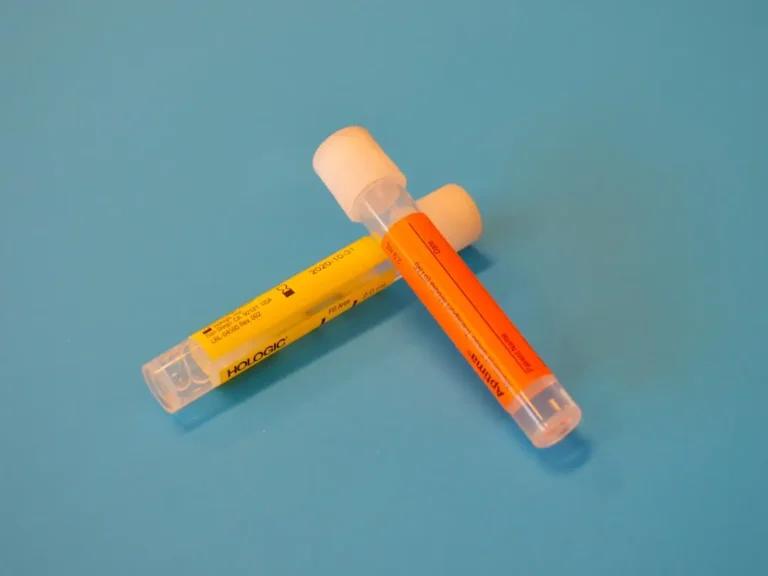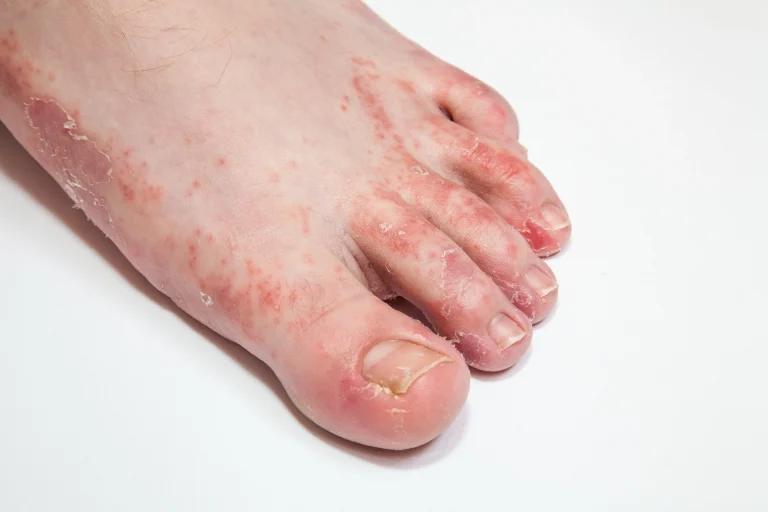
Have you ever had an infection? Infections are common and there are many different types of infections caused by microorganisms such as bacteria, viruses, fungi or parasites. In this post we’ll take a look at the most common infectious diseases, what causes them and how they can be treated. We’ll also discuss prevention tips to help keep you healthy. So read on to learn more about the most common infections and how to protect yourself from them.
Staphylococcus Aureus infections
Staphylococcus aureus, more commonly known as MRSA (Methicillin-Resistant Staphylococcus Aureus) is an antibiotic-resistant infection that can cause serious health complications. MRSA most often affects the skin and soft tissue, but it can also cause life-threatening lung and blood infections.
Though it is most commonly found in hospitals and nursing homes, where it can easily spread among patients with weakened immune systems, MRSA can also affect healthy individuals. Symptoms include fever, chills, sweats, coughing and shortness of breath. If left untreated, MRSA can lead to sepsis, a potentially fatal condition characterised by organ failure and severe inflammation.
Early diagnosis and treatment are essential for preventing serious complications. In recent years, MRSA has become increasingly common, due in part to the overuse of antibiotics. To reduce your risk of infection, practice good hygiene and avoid sharing personal items such as towels or razors. If you suspect you have MRSA, see a healthcare provider immediately.
E.coli
E. coli (Escherichia coli) is a type of bacteria that normally lives in the intestines of people and animals. It is usually harmless, but some strains can cause illness. Infection with these harmful strains can cause severe diarrhoea, bloody stool and abdominal cramps. In some cases it can lead to more serious complications, including kidney failure. E. coli outbreaks often occur when contaminated food or water is consumed. Poor hygiene practices can also lead to infection. Outbreaks of E. coli are a serious public health concern because they often result in a large number of people becoming ill at once. Symptoms of E. coli infection typically appear within 3-4 days after exposure to the bacteria. Most people recover within a week, but some may require hospitalisation. People with weaker immune systems, young children and the elderly are at an increased risk for developing more severe symptoms and complications. Early diagnosis and treatment of E. coli infection are essential for preventing serious health problems.
Chlamydia
Chlamydia is a sexually transmitted disease that is caused by the bacteria Chlamydia trachomatis. It can infect both men and women and is most commonly passed through unprotected vaginal, oral or anal sex. However, it can also be passed from an infected mother to her child during childbirth. It is often asymptomatic, meaning many people who have it are unaware they are infected. When symptoms do occur, they usually appear within 1-3 weeks of exposure Symptoms of chlamydia can include:
- Burning during urination
- Unusual discharge from the penis or vagina
- Pain in the lower abdomen
- Bleeding between periods
If left untreated chlamydia can lead to serious health problems such as infertility, pelvic inflammatory disease and ectopic pregnancy. Fortunately, it can be easily treated with antibiotics. However, it is important to abstain from sexual activity until the infection has cleared to avoid re-infection. Anyone who is sexually active should get tested for chlamydia on a regular basis.
Norovirus
Gastroenteritis or ‘stomach flu’ is a common cause of vomiting and diarrhoea, particularly in young children. It can be caused by a number of different viruses, including the Norovirus. The Norovirus is a highly contagious virus that causes vomiting and diarrhoea. The virus is spread through contact with infected faeces, vomit, or contaminated surfaces. People who are at higher risk for severe illness from Norovirus include young children, the elderly and those with weakened immune systems.
Norovirus infection is a common infection that can happen at any time of the year, but it happens more often from November to April when people are more likely to be at home or indoors. It is possible you might get different versions of gastroenteritis many times throughout life as a variety of different viruses can cause stomach flu.
There are a number of measures that can be taken to reduce the risk of gastroenteritis, including hand washing and careful food preparation. However, gastroenteritis can still occur even if these measures are followed. Norovirus can be very unpleasant, but most people recover within a few days. Severe cases can lead to dehydration, which can be dangerous. People who are at higher risk from gastroenteritis, such as young children and older adults, should seek medical advice if they develop symptoms.
Athlete’s foot
Athlete’s foot is a skin infection that is caused by a fungal infection. The fungus usually grows in moist areas, such as showers, locker rooms and pools. The fungus can also spread from person to person through contact with contaminated surfaces. The infection usually begins between the toes, where the skin is soft and moisture levels are high. From there, it can spread to other parts of the foot. In severe cases, the infection can spread to the nails or even to other parts of the body. People who have athlete’s foot often have damp or sweaty feet. Symptoms of athlete’s foot include:
- Itchy skin
- Burning skin
- Red, irritated skin
- Cracked and peeling skin
- In severe cases, the infection can spread to the nails or even to other parts of the body
Athletes’ foot is usually treated with antifungal creams or powders. In severe cases, oral antifungal medication may be necessary. Some people may also be susceptible to recurrent infections. To prevent athlete’s foot, it is important to keep the feet clean and dry. Wearing shoes that allow the feet to breathe is also important. If someone has athlete’s foot, they should avoid sharing towels or shoes with others.
Urinary tract infections (UTI)
A urinary tract infection (UTI) is a bacterial infection that can occur in any part of the urinary system, including the kidneys, ureters, bladder, or urethra. Most UTIs are caused by bacteria that enter the urinary system through the urethra and travel to the bladder. The bacteria then multiply and cause an infection.
UTIs are more common in women than men because their urethras are shorter and closer to the anus, which allows bacteria to enter the urinary system.
Symptoms of a UTI may include
- A strong urge to urinate
- Pain or burning during urination
- Cloudy or bloody urine
- Pelvic pain
UTIs can usually be treated with antibiotics. However, some UTIs may resolve on their own without treatment. In most cases, symptoms will improve within a few days of starting treatment. However, some people may experience recurrent UTIs.
Recurrent UTIs can be frustrating, but there are several things that can be done to help reduce the risk of developing another infection. These include drinking plenty of fluids, urinating regularly and using an appropriate cleansing method after sexual intercourse. People who are susceptible to UTIs may also want to avoid wearing tight-fitting clothing and using perfumed products in the genital area.
Common cold
The respiratory disease known as the common cold is caused by a rhinovirus, of which there are many strains. Other viruses that can cause colds include a respiratory syncytial virus, human parainfluenza viruses, adenovirus, common human coronaviruses and human metapneumovirus.
The name comes from Greek, with ‘rhino’ meaning nose. These viruses are airborne and transmitted person to person by respiratory droplets, for example when an infected individual sneezes or coughs. Once inhaled, the virus replicates in the epithelial cells of the upper respiratory tract.
Symptoms include:
- Runny nose
- Nasal congestion
- Sneezing
- Sinusitis
- Sore throat
They generally last for around a week and whilst most people recover without any complications, for some, such as the elderly or immunocompromised, they can lead to more serious respiratory problems such as pneumonia. There is no specific cure for the common cold and currently no vaccine exists to prevent its spread. Treatment focuses on relieving symptoms until the virus has run its course. So next time you feel a cold coming on, remember – you’ve got a rhinovirus!
Influenza
Influenza (flu) is a viral infection. The symptoms of the flu are caused by the influenza virus, which is classified as a human respiratory pathogen. The virus is divided into two main subtypes, Human influenza A and B. Both of these subtypes are capable of causing the flu, but influenza A is generally more infectious.
The flu is typically spread through contact with an infected person’s respiratory secretions, such as saliva, mucus, or blood. The virus can also be spread through contact with contaminated surfaces, such as doorknobs or countertops. Once the virus enters the body, it begins to replicate in the upper respiratory tract. This replication process causes the symptoms of the flu, which include:
- Sudden fever
- Chills
- Coughing
- Muscle aches
- Pneumonia in severe cases
Treatment for the flu typically involves rest and fluids. In severe cases, antiviral medications may be prescribed. These medications can help shorten the illness’s duration and reduce the severity of symptoms. However, they must be started within 48 hours of symptom onset to be effective.
Prevention of the flu is typically accomplished through vaccination. Vaccination helps to stimulate immunity against the influenza virus and is recommended for all people over the age of six months.
Other common infections
- Gonorrhea
- Meningitis
- Hepatitis A
- Hepatitis B
- Hepatitis C
- Salmonella
- Streptococcus infections
- Ringworm
- HIV/AIDS
- Dengue
- Herpes
- West Nile Virus
While we can’t list every infectious disease out there, we have talked about some of the most common. If you think you may be experiencing any of these symptoms, please speak to your healthcare professional for medical advice and information on how to protect yourself and your loved ones. Infectious diseases can quickly spread and cause serious damage if left untreated. By being proactive and informed, you can help keep yourself safe from many different illnesses.
Sources
- Common Illnesses – CDC
- E-Coli – WHO
Medical Disclaimer
NowPatient has taken all reasonable steps to ensure that all material is factually accurate, complete, and current. However, the knowledge and experience of a qualified healthcare professional should always be sought after instead of using the information on this page. Before taking any drug, you should always speak to your doctor or another qualified healthcare provider.
The information provided here about medications is subject to change and is not meant to include all uses, precautions, warnings, directions, drug interactions, allergic reactions, or negative effects. The absence of warnings or other information for a particular medication does not imply that the medication or medication combination is appropriate for all patients or for all possible purposes.












